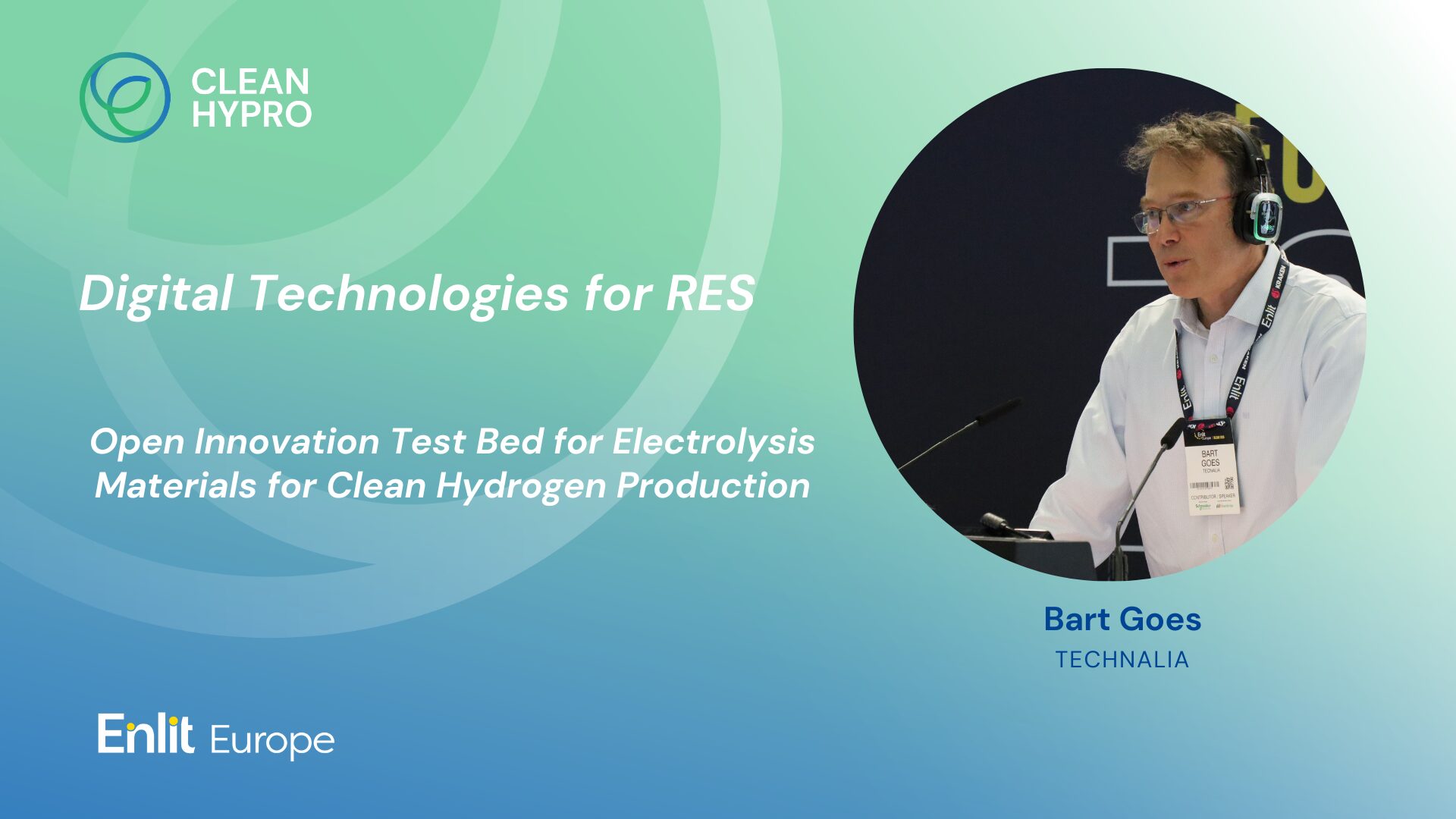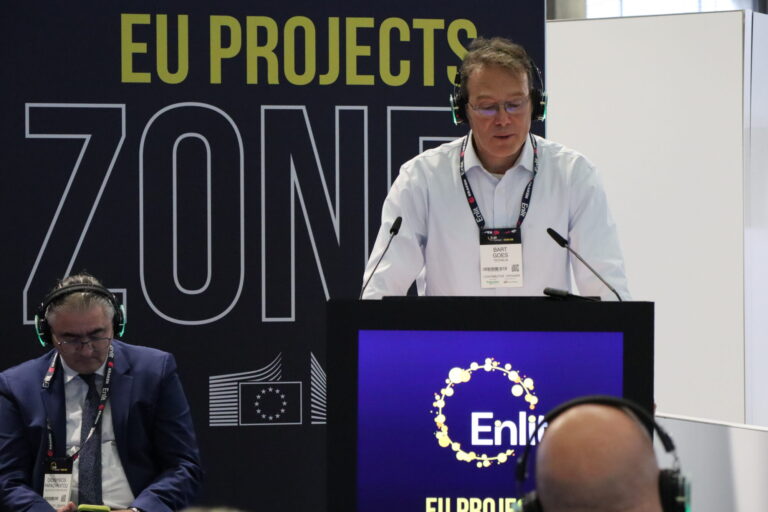
The energy transition requires a massive increase in renewable and low-carbon hydrogen production, which has seen installed electrolyser capacity grow nine-fold since 2021. Addressing this acceleration was the focus of the “Digital Technologies for RES” session at ENLIT Europe 2025, where Dr. ir. Bart Goes, representing the CLEANHYPRO project, outlined a strategy for integrating digital solutions across the electrolysis value chain.
Methodology: Digitalisation Across the Value Chain
The foundation of CLEANHYPRO’s approach is the belief that digital technologies are essential to automate and standardise every step of the renewable hydrogen value chain.
-
Manufacturing and Components: Digitalisation is applied to core components—including electrodes, membranes, catalyzers, and bipolar plates—for better automation. This includes the automatised manufacturing of catalyst coated membranes (CCMs) and the 3D-printed fabrication of complete Solid Oxide Electrolysis Cells (SOEC).
-
Modelling and Design: Digital tools are employed for modelling, simulation, control, and design, facilitating efficiency and precision.
-
Certification and Operation: Digital technology is leveraged for product certification, including RFNBO (Renewable Fuels of Non-Biological Origin), often employing solutions like blockchain.
Bart Goes stressed the critical interdependence of these elements, stating: “CLEANHYPRO aims to facilitate the adoption of electrolysis technologies and build the full hydrogen value chain. Digital technologies are key, particularly in manufacturing, to help us automate our systems for the highest efficiency. However, digital technologies are not enough if they are not combined with policies that help advance the EU transition.”

Results and Impact: Accelerating SMEs via Open Calls
The project’s main mechanism for validating this integrated infrastructure is through demonstrations: four planned showcases and two Open Calls.
Bart Goes confirmed the value proposition for the European innovation ecosystem: “We have an open call to support SMEs, which is now open on our website until 18th of December.”
Technology Infrastructure: CLEANHYPRO aims to upscale and upgrade nine Pilot Lines (PLs) while developing associated services to provide qualified electrolysis materials and essential components, meeting industrial needs.
SME Access: The technology infrastructure is specifically designed for industrial players, especially SMEs, who seek support to develop and integrate innovative technologies towards commercialisation.
Provision of Services: The Open Calls provide successful applicants with services free of charge, which may have a value of up to €150,000 per project. Crucially, there is no transfer of funds to beneficiaries (no cascade funding). This structure eliminates the administrative burden, allowing the company to focus entirely on the project.
The Open Calls will launch two waves, funding at least 16 democases in total. The first wave application period closes on 18th December 2025.
The Future of Scalable Hydrogen
The presentation clearly positioned CLEANHYPRO not just as a research initiative, but as a crucial accelerator for industrial-scale hydrogen production. The project demonstrates that by combining automated manufacturing and predictive digital tools with comprehensive service support, Europe can effectively meet the growing global demand for renewable hydrogen, a fundamental energy carrier and chemical building block for new applications.
The goal is set to create the Multi-Centre Technology Infrastructure by October 2027.
Funded by the European Union. Views and opinions expressed are however those of the author(s) only and do not necessarily reflect those of the European Union or the European Education and Culture Executive Agency (EACEA). Neither the European Union nor EACEA can be held responsible for them.